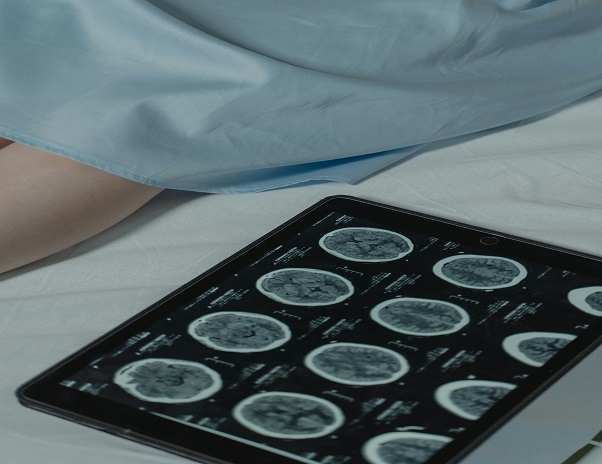
Understanding Brain Tumors: Causes, Symptoms, Support
World Brain Tumor Day, observed on June 8th each year, is a crucial event to raise awareness about brain tumors, their impact on individuals, and the importance of research and support. Brain tumors, both benign and malignant, can significantly affect a person's quality of life. Understanding the causes, symptoms, and preventive measures is essential for managing this complex condition. This blog aims to shed light on living with a brain tumor, the factors contributing to their development, early warning signs, and strategies to reduce risk.
> Causes of Brain Tumors
The exact cause of brain tumors remains largely unknown, but several factors are believed to contribute to their development:
1. Genetic Factors: Certain genetic mutations and inherited conditions, such as neurofibromatosis, Li-Fraumeni syndrome, and Turcot syndrome, can increase the risk of brain tumors. Family history plays a significant role, although most brain tumors are not directly inherited.
2. Environmental Exposure: Prolonged exposure to ionizing radiation, such as from X-rays and radiation therapy, has been linked to an increased risk of brain tumors. Additionally, exposure to certain chemicals and carcinogens, like vinyl chloride and pesticides, might elevate risk levels.
3. Age: The risk of developing a brain tumor increases with age, although they can occur at any age. Certain types of brain tumors, like medulloblastomas, are more common in children, while gliomas and meningiomas are more prevalent in adults.
4. Gender: Some types of brain tumors, such as meningiomas, are more common in women, suggesting that hormonal factors might play a role.
5. Immune System Disorders: Conditions that weaken the immune system, including HIV/AIDS, can increase the likelihood of developing brain tumors.
> Symptoms of Brain Tumors
Brain tumor symptoms can vary widely depending on the tumor's size, location, and rate of growth. Common symptoms include:
1. Headaches: Persistent headaches, often worse in the morning or during physical activity, are a common symptom. These headaches may not respond to usual pain relief methods.
2. Seizures: New-onset seizures or changes in seizure patterns are significant indicators of a brain tumor. Seizures can range from mild to severe and may involve twitching or loss of consciousness.
3. Cognitive Changes: Difficulty concentrating, memory loss, and changes in personality or behavior can indicate a brain tumor. These changes are often subtle at first but may become more pronounced over time.
4. Motor Skills and Coordination Issues: Weakness, numbness, or difficulty with balance and coordination can be signs of a tumor affecting the brain's motor areas.
5. Vision and Speech Problems: Blurred or double vision, partial loss of vision, and speech difficulties like slurring or trouble finding the right words are common symptoms.
6. Nausea and Vomiting: Unexplained nausea and vomiting, especially when accompanied by other neurological symptoms, can be a warning sign.
> Prevention and Risk Reduction
While not all brain tumors can be prevented, certain lifestyle and environmental changes can help reduce the risk:
1. Avoiding Exposure to Radiation: Limiting unnecessary exposure to ionizing radiation, such as from medical imaging and occupational sources, can reduce the risk. When radiation is necessary, protective measures should be taken.
2. Healthy Lifestyle Choices: Maintaining a healthy diet rich in fruits, vegetables, and whole grains, along with regular physical activity, supports overall health and may help reduce cancer risk.
3. Avoiding Harmful Chemicals: Minimizing exposure to carcinogenic substances, including certain pesticides and industrial chemicals, can lower the risk. Using protective equipment and following safety guidelines is crucial in high-risk occupations.
4. Regular Medical Check-ups: Routine medical exams and staying vigilant about any new or unusual symptoms can lead to early detection and treatment. Early intervention often improves outcomes.
5. Genetic Counseling: For individuals with a family history of brain tumors or genetic conditions linked to brain tumors, genetic counseling and testing can provide valuable information about risk and preventive strategies.
> Living with a Brain Tumor
Living with a brain tumor presents numerous challenges, but with the right support and management strategies, individuals can maintain a good quality of life:
1. Medical Treatment: Treatment options for brain tumors include surgery, radiation therapy, chemotherapy, and targeted therapy. The choice of treatment depends on the tumor's type, size, location, and overall health of the patient. Regular follow-ups with a healthcare team are essential for monitoring and managing the condition.
2. Support Systems: Emotional and psychological support is crucial for individuals and families affected by brain tumors. Support groups, counseling, and connecting with others facing similar challenges can provide comfort and practical advice.
3. Rehabilitation: Physical therapy, occupational therapy, and speech therapy can help manage symptoms and improve functionality. These therapies are tailored to address specific deficits caused by the tumor or its treatment.
4. Lifestyle Adjustments: Adapting daily routines and making necessary adjustments at home and work can help individuals cope with physical and cognitive changes. Open communication with employers and educators can facilitate necessary accommodations.
5. Mental Health Care: Addressing mental health through counselling, stress management techniques, and, if necessary, medication can significantly enhance quality of life. Mindfulness, relaxation techniques, and staying socially active also contribute to mental well-being.
World Brain Tumor Day serves as a reminder of the importance of awareness, research, and support for those affected by brain tumors. Understanding the causes, recognizing early symptoms, and adopting preventive measures can improve outcomes and quality of life. For those living with brain tumors, a comprehensive approach involving medical treatment, rehabilitation, and strong support systems is essential. By continuing to raise awareness and support research, we can work towards better prevention, early detection, and effective treatments for brain tumors, ultimately enhancing the lives of those affected.
